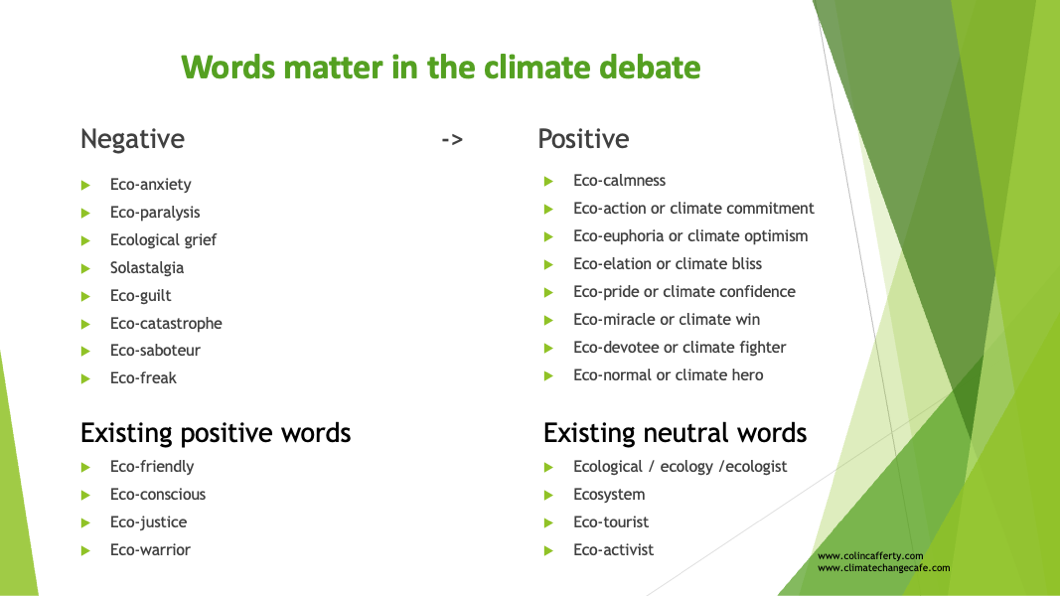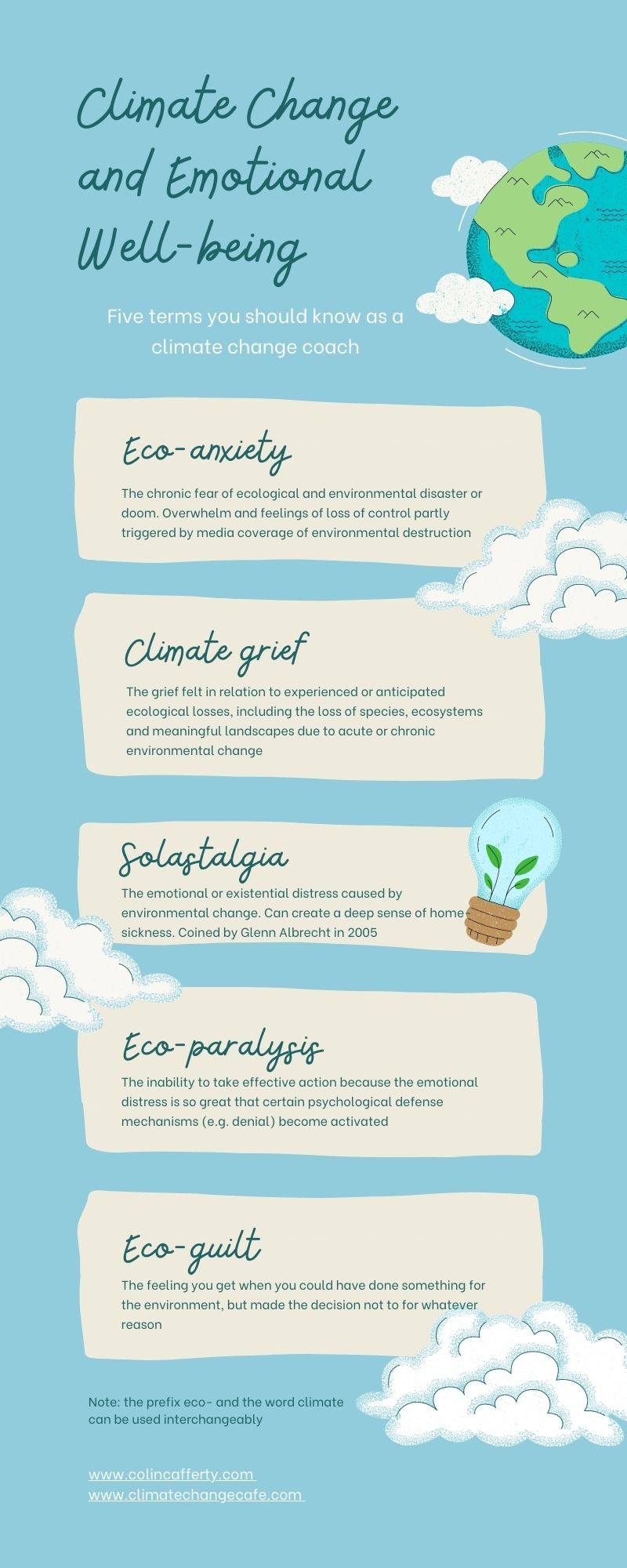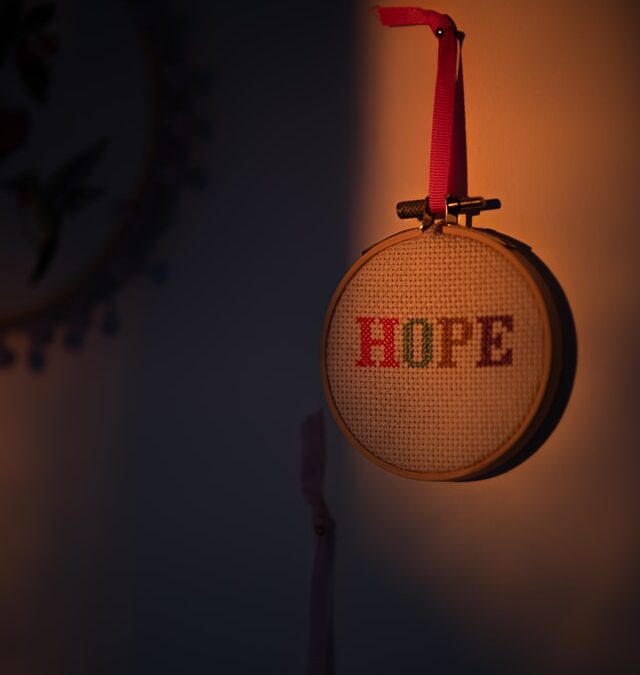The words we use matter. The way we talk to ourselves matters. Negative self-talk can undermine our confidence, our self-belief and affect our mood. It can even change how we behave and influence our actions. Positive self-talk, on the other hand, can empower us to try out new things and build up our self-confidence. We can reframe the way we talk to ourselves so that instead of berating ourselves for making a mistake, we can think about all that we have learned from it. When we talk to ourselves with kindness and self-compassion, we are more likely to feel hopeful and to improve our self-esteem and confidence.
But what about when we talk about the environment? I decided to do a quick review of words beginning with the prefix eco for this exercise and then classify them into positive, negative or neutral categories based on their connotation. This list is by no means exhaustive but should be broadly representative based on an online search. There is also a rise of two-word phrases starting with “climate” such as climate grief or climate dystopia. As can be seen, there is a preponderance of words in the negative category. This is hardly surprising based on the tendency of scientists, media and public alike to talk about environmental disaster and destruction rather than renewal and regeneration.
A neologism is a relatively recent or isolated term, word, or phrase that may be in the process of entering common use, but that has not yet been fully accepted into mainstream language. One example is the word solastalgia, the emotional or existential distress caused by environmental change. I’ve come up with a few suggestions of my own – nothing too imaginative mind you. My approach has simply been to find an appropriate opposite or antonym (if one even exists) to such words as eco-anxiety, eco-paralysis and eco-guilt. Unfortunately, my knowledge of Latin and Greek, from which so many English words stem, isn’t quite up to scratch but that would be an interesting exercise for any of you cunning linguists out there.

A wealth of research already exists on the importance of communicating climate change in a way that is simple, direct and relevant to people’s lives. For instance, a 2010 study on Reframing climate change as a public health issue found that that continuing to communicate about the problem of climate change is not likely to generate wider public engagement. Instead, public health voices may be wise to focus their communication on the solutions and the many co-benefits that matter most to people. Furthermore, it has been shown that people feel disempowered when all they hear about is doom and gloom. A majority of participants in a study by the University of Tasmania in 2020 told of feeling disempowered by their educational encounters with climate change. They described being overwhelmed by an experience of limited agency and power, of feeling betrayed and even afraid of learning about climate change based on their childhood experiences. One good reason why we need to reframe the issue using a new language, new imagery, new metaphors, even new words.
In my role as a coach, I look to support others to empower themselves by finding new perspectives and transforming negative self-talk. More specifically, as a climate change coach, I intend to support others to find new strategies to cope with eco-emotions (see infographic below) by connecting with themselves, with others and with Nature. There’s also good reason for why we should retell stories not only about ourselves but also about the imagined future we desire. And for this we require not just storytelling skills but also a brand-new language to express our feelings.

“By choosing how you frame and talk about something, you are cuing others to think about it in a specific way. We can drastically change someone’s perspective by how we choose to talk about and frame something”, according to cognitive scientist Lera Boroditsky in a 2017 article on Why Words Matter for Scientific American. That is not to say that we stop talking about rainforest destruction in the Amazon or devastating wildfires in the Australian Outback. But we need more balance, particularly in the future we imagine for ourselves. Yes, we are in the midst of a climate crisis but we could also say that we are standing on the cusp of a climate breakthrough. No, this does not mean that are not trying to downplay the severity of the impact of climate change. But if we are to avoid feelings of hopelessness, of climate despair and eco-paralysis, then we need to start with how we talk about it. Data from a 2018 study by the Yale Progam on Climate Change Communication found that Americans who remain hopeful are consistently more likely than those with less hope to say they will act on global warming. Hopeful Americans are also more likely to discuss global warming with their friends and family and support policies to reduce global warming. By visualising a future where we can make a positive impact based on our actions taken today, we can empower ourselves and others to change behaviours, lobby local politicians, create community initiatives and form a closer connection with Nature.
So let us talk more about eco-calmness and eco-courage. And let us strive to become the climate heroes or climate champions of tomorrow. For we can change the world – one person – and one word – at a time.


 Hi! I’m a Certified Coach based in Berlin, Germany. I help others to find the clarity and courage to change to a career in the service of People and Planet. I also coach those already active in the social and environmental sector to build resilience, overcome stress and achieve positive impact on their quest to make the world a better place.
Hi! I’m a Certified Coach based in Berlin, Germany. I help others to find the clarity and courage to change to a career in the service of People and Planet. I also coach those already active in the social and environmental sector to build resilience, overcome stress and achieve positive impact on their quest to make the world a better place.